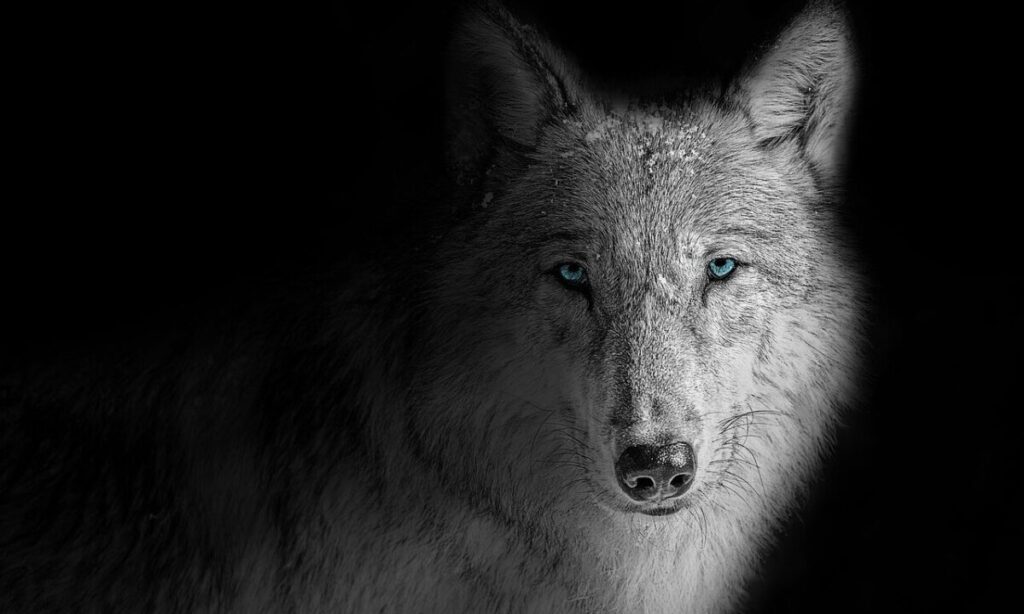Wisconsin, with its diverse landscapes ranging from lush forests to expansive lakeshores, boasts an impressive array of wildlife species.
Among these creatures, the Gray Wolf holds a significant place. However, the topic of wolf hunting has sparked contentious debates and ethical concerns.
While hunting has been a longstanding tradition in the state, the recent focus on wolf hunting raises questions about its impact on ecosystems and the image of hunting as a whole.
Gray Wolves in Wisconsin
Hunters for Wolves, an organization advocating for the preservation of healthy ecosystems and ethical wildlife management, underscores the importance of safeguarding Wisconsin’s wildlife for present and future generations.
Gray Wolves, integral to the state’s ecological balance, have been subject to hunting practices that raise eyebrows both within and beyond hunting circles.
Wisconsin’s approach to Gray Wolf management is unique. The state permits hunting based on a minimal population threshold, currently set at 350 wolves. This figure stems from outdated perspectives and political considerations rather than scientific consensus.
The decision to conduct wolf hunts has also raised objections from tribal communities – the original caretakers of these lands, where the wolf has been revered as a “brother.”
The Ethical Debate on Wolf Hunting
Unlike conventional hunting practices that occur during daylight hours, wolf hunting introduces elements that stir ethical concerns.
Unlike deer hunting, wolf hunters and trappers can operate under the cover of night, utilizing packs of dogs to track and corner their quarry. This approach transforms the hunt into a grisly spectacle, reminiscent of organized dog fights – an act unequivocally prohibited in the United States.
This controversial practice has positioned Wisconsin as the sole state permitting such methods, further highlighting the contentious nature of wolf hunting regulations in the state.
Why Wolf Hunting Reflects Badly on Real Hunters
The ethical implications of wolf hunting extend beyond legal boundaries.
Hunting, when practiced responsibly and ethically, holds value as a means of wildlife management and conservation. However, the spotlight on wolf hunting projects an image that contradicts the principles of ethical hunting.
The use of tactics that mirror blood sports diminishes the reputation of hunting as a legitimate activity aimed at population control and ecological balance.
Wolf hunting not only disrupts the natural order but also fractures wolf packs – family units that play a vital role in maintaining ecological harmony. This fragmentation forces wolves to seek alternative prey, including domestic animals and livestock.
Consequently, the unintended consequence of wolf hunting adversely affects Wisconsin’s farmers who are already grappling with economic challenges.
Controversial Practices in Wolf Hunting
“I only hunt waterfowl, ducks, and geese, but I will say this about wolf hunting – pursuing wolves with dogs, snowmobiles, GPS trackers and baited traps is not fair chase.” – Scott Cassels, CasselsWaterfowl.com.
Many hunters who hunt ducks, pheasants, deer, elk, etc. argue against the methods employed in wolf hunting.
Using dogs, snowmobiles, GPS trackers, and baited traps, veer away from the principles of fair chase and delve into what they view as borderline barbarism.
Utilizing advanced technologies and tactics raises concerns about the integrity of the hunting experience and the treatment of these apex predators in their natural habitats.
A Silence Born of Fear
In the midst of the debates surrounding wolf hunting, a curious silence prevails within the hunting community itself.
Curious, because while many hunting-based conservation organizations claim to champion science-based wildlife management, few have raised their voices against the contentious practices associated with wolf hunting.
This apparent lack of vocal opposition to what some view as a violation of the North American model of wildlife management is puzzling. However, there’s a significant reason behind this silence — the fear of ostracization.
Many hunters who oppose the methods used in wolf hunting fear social isolation within their own community. This reluctance to openly address the issue is troubling and raises questions about the unity and inclusivity of the hunting world.
The reluctance of many hunting organizations to stand up against these practices contrasts starkly with their claims of upholding ethical and science-driven wildlife management principles.
Advocacy for Healthy Ecosystems
Recognizing the significance of wolves in maintaining healthy ecosystems, organizations like Hunters for Wolves champion responsible wildlife management.
Upholding the conservation ethic, these advocates stress the importance of aligning hunting practices with ecological well-being.
By advocating for the protection of wolves and other keystone species, these organizations aim to create a harmonious coexistence between humans and wildlife.
